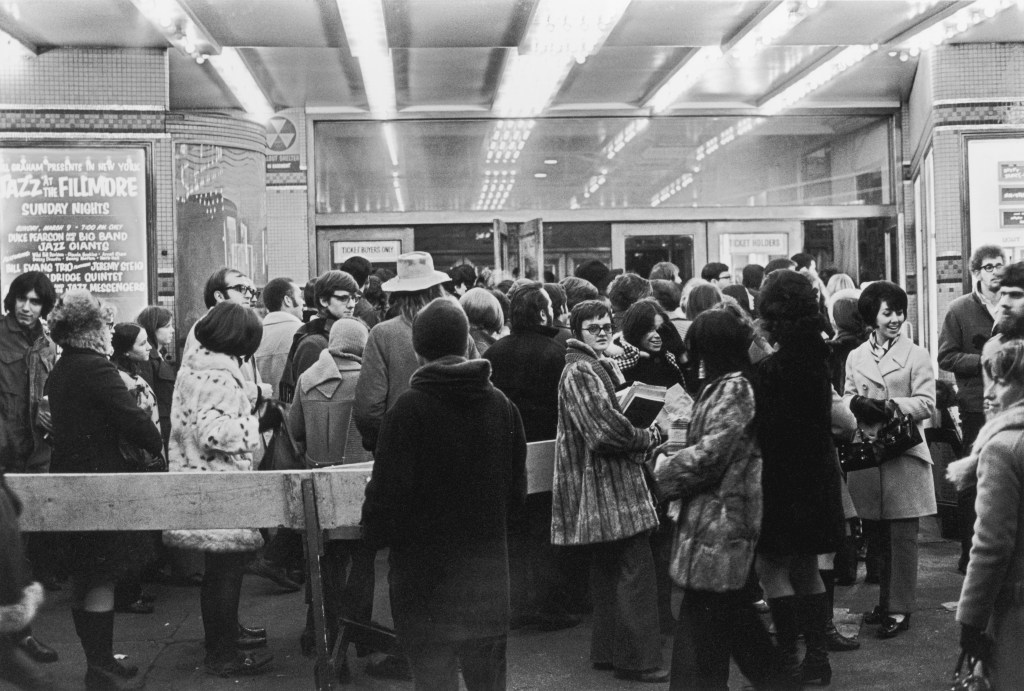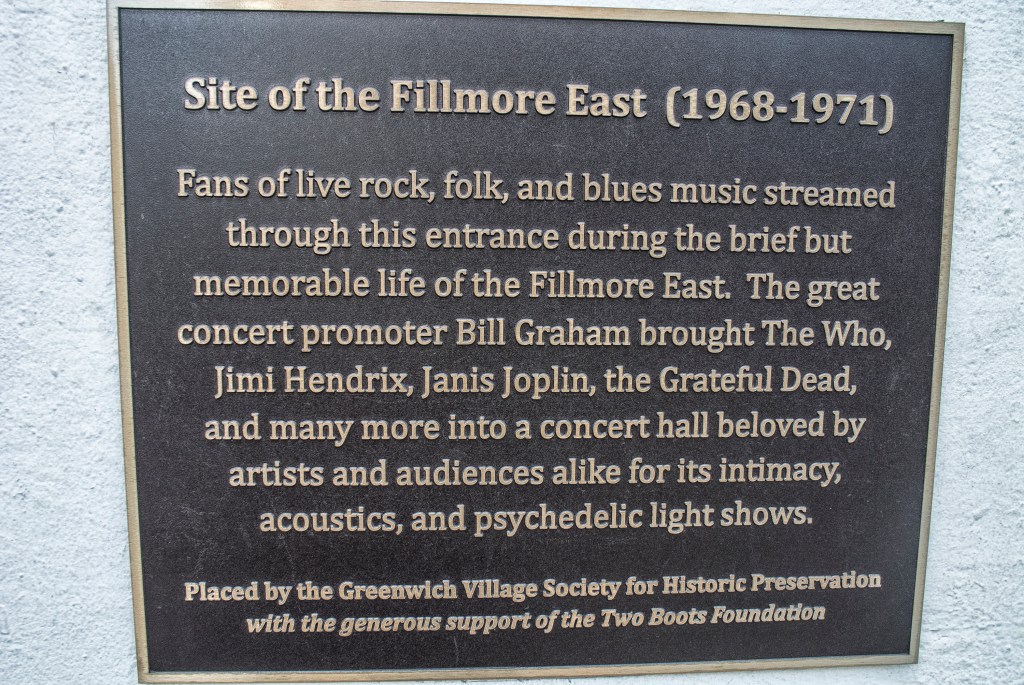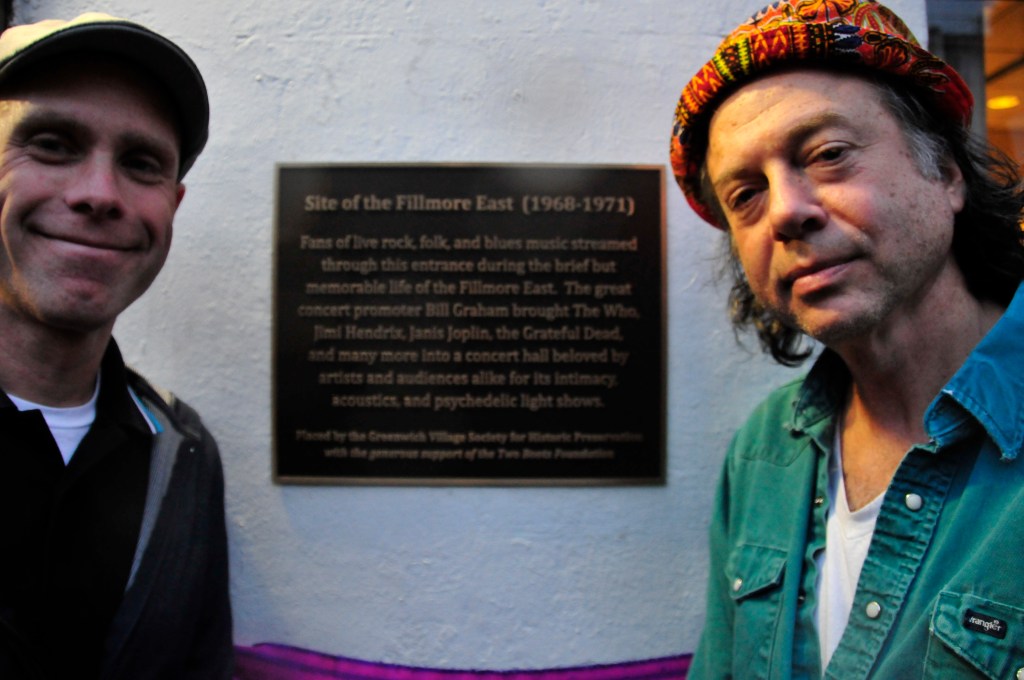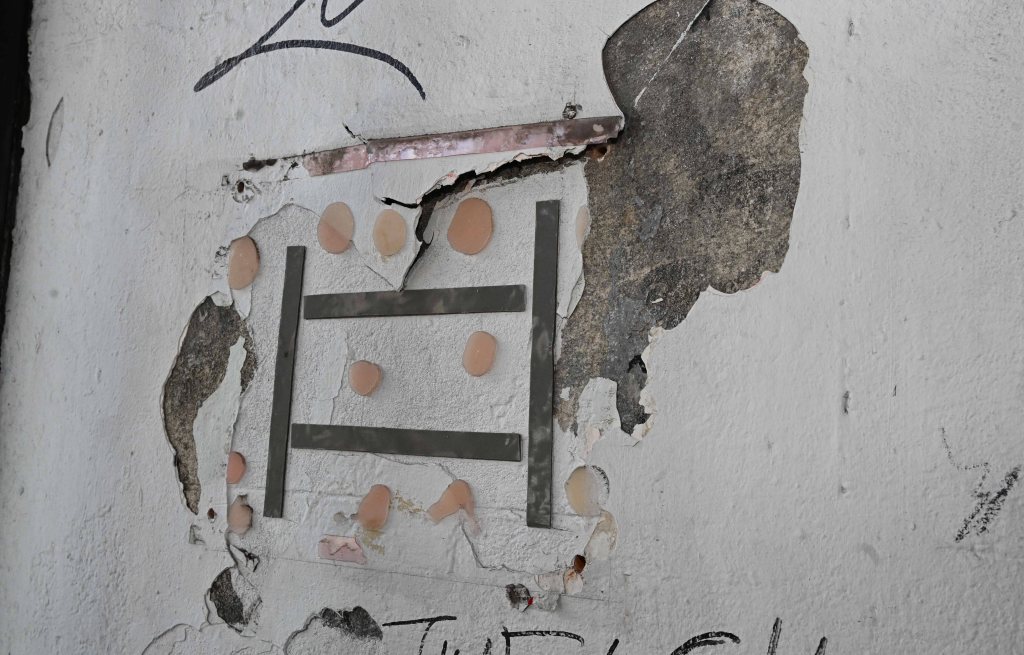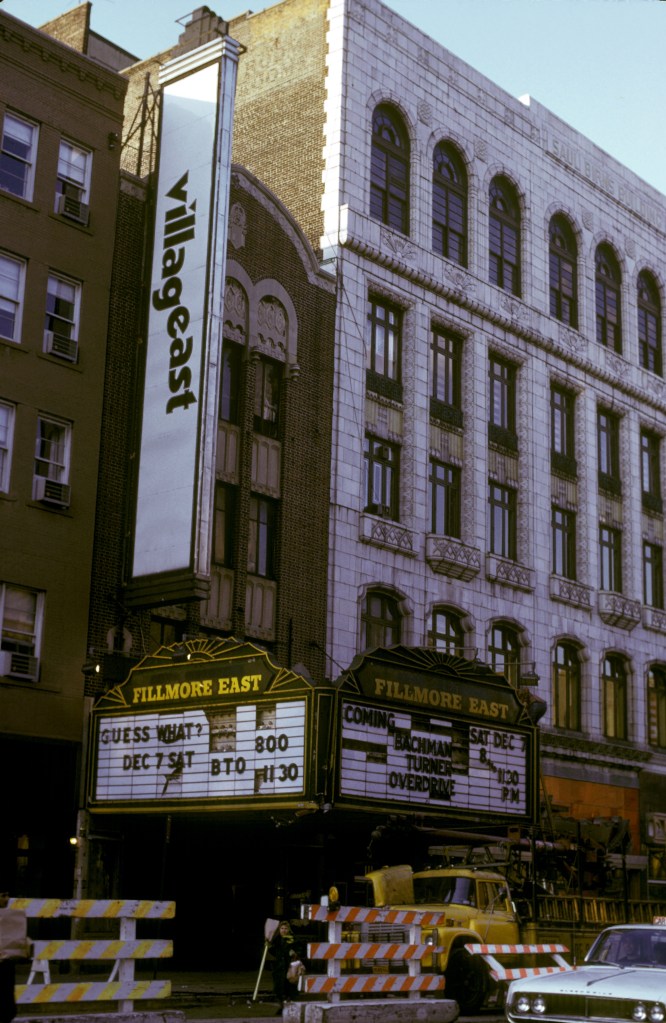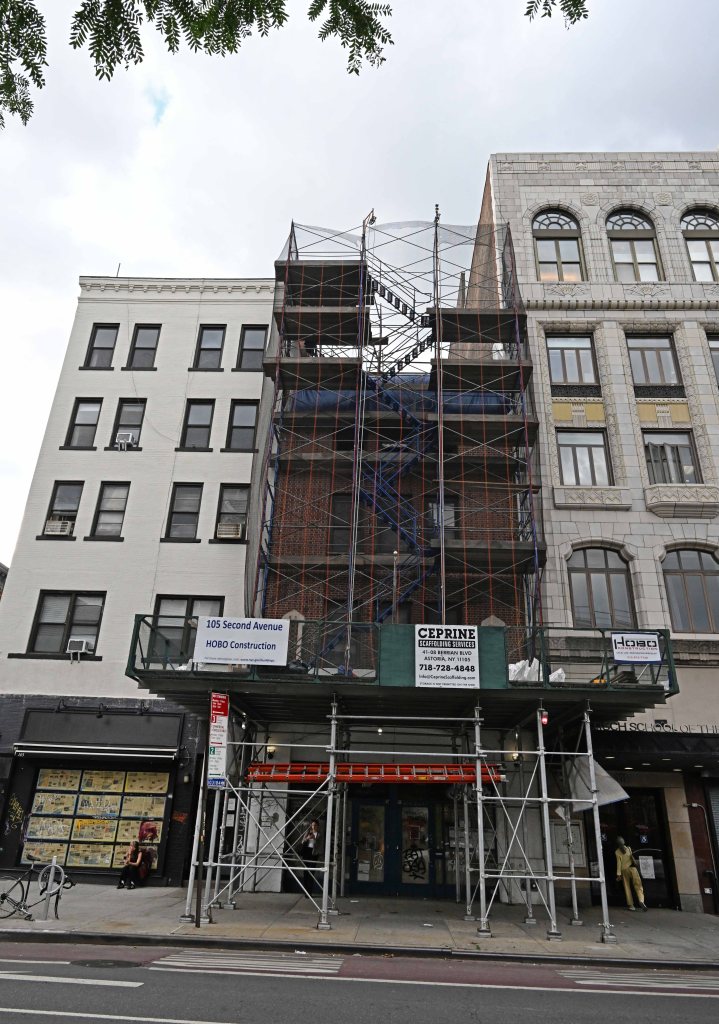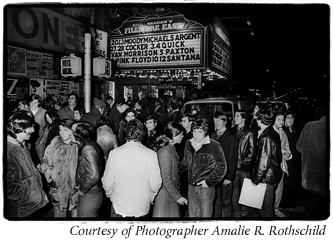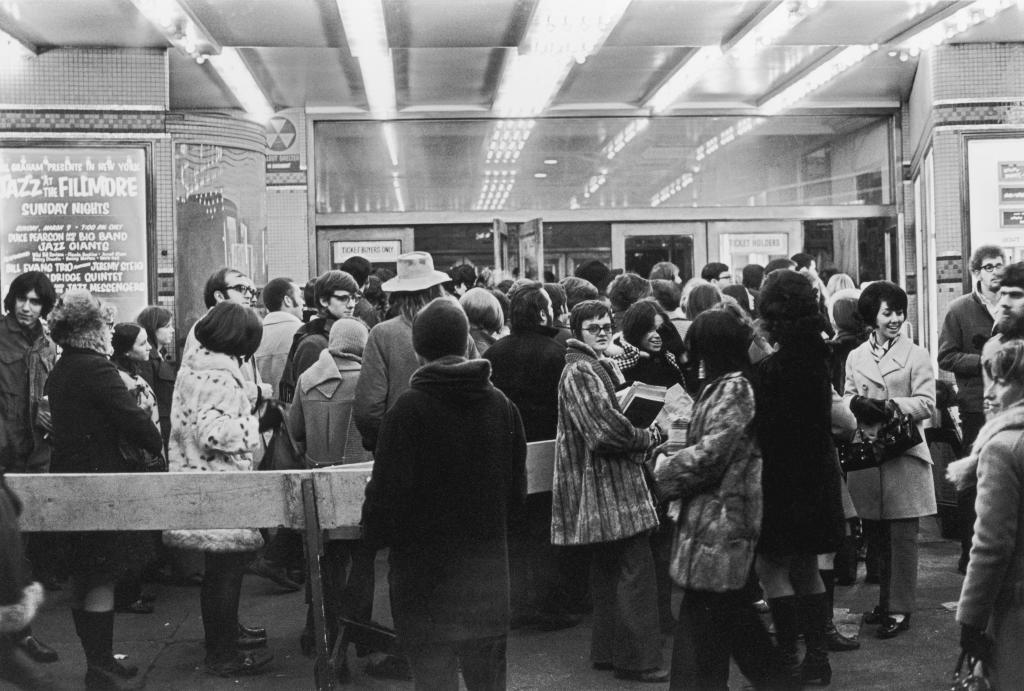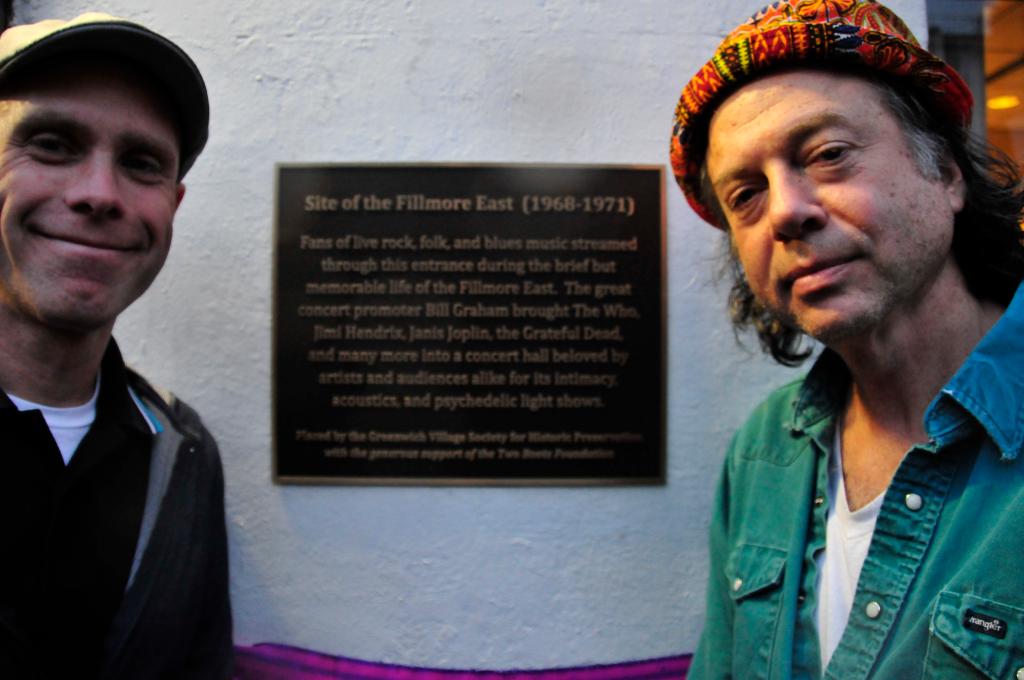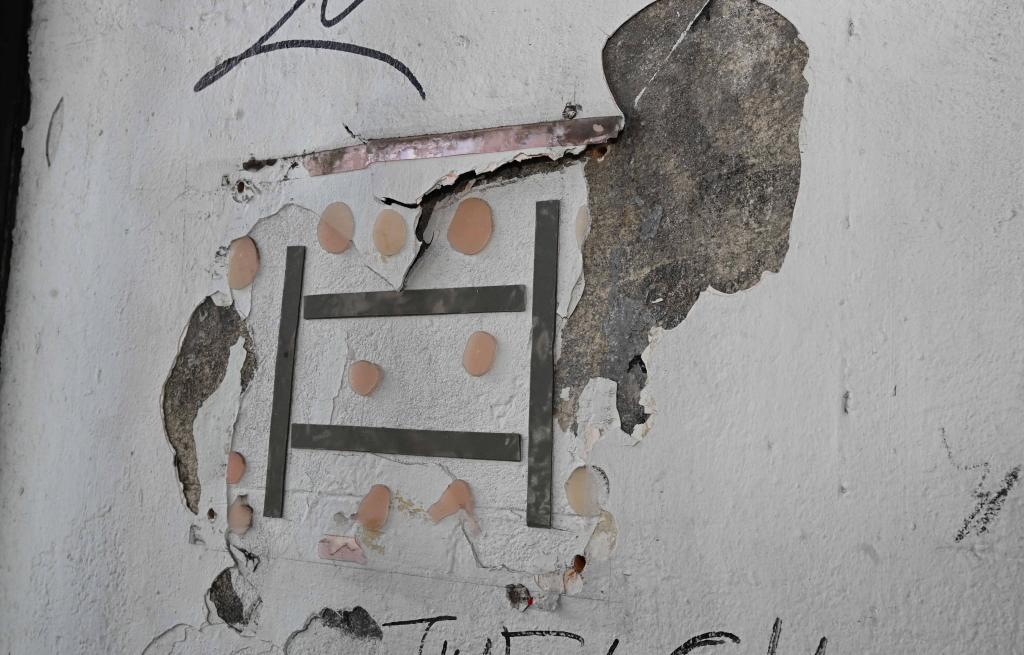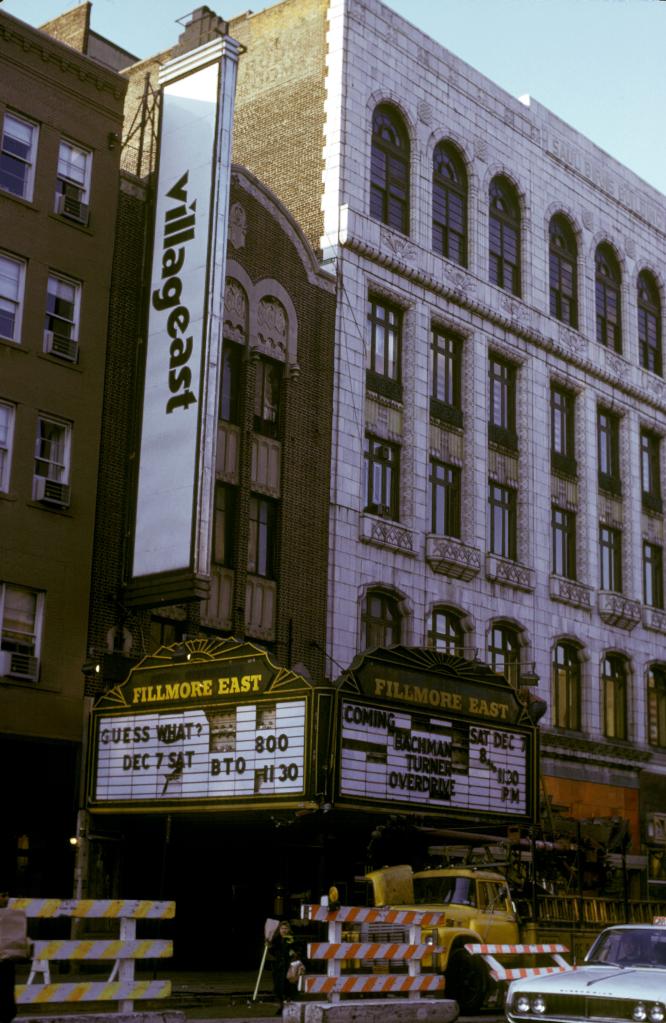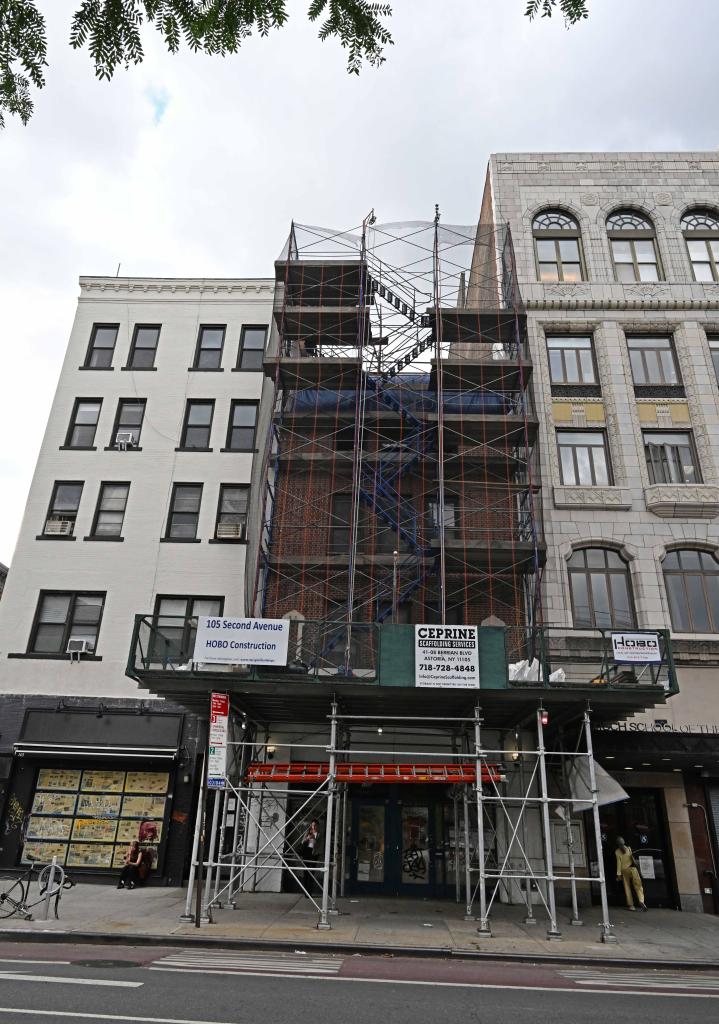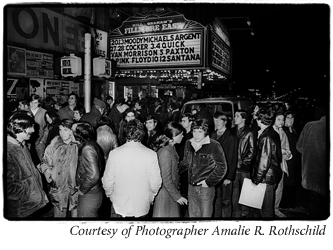Fillmore East plaque vanishes from NYC building, sparking rock’n’roll mystery where Jimi Hendrix, Allman Brothers graced the stage
A metal plaque commemorating the Fillmore East — one of the most storied venues in music history — vanished from the site of the long-shuttered Lower East Side concert hall about a week ago.
And local preservationists want it back.
“We were obviously very upset to hear it was gone,” Andrew Berman, executive director of the nonprofit group Village Preservation, told The Post on Monday. “We don’t know if somebody stole it … we just don’t know for sure.”
The organization — founded 44 years ago to preserve the architectural and cultural heritage of Greenwich Village, the East Village and NoHo — collaborated with the Two Boots Foundation and mounted the $2,500 plaque outside what was then an Apple Bank on Second Avenue near East Sixth Street in October 2014, Berman said.
The building, which was a sister venue to another iconic live spot in San Francisco, had a rock’n’roll past that only lasted from 1968 to 1971 but had an outsized impact on music history.
During that short time, renowned music impresario Bill Graham lured to the Fillmore the most famous acts of the day, including John Lennon, Jimi Hendrix, Eric Clapton, Elton John, B.B. King, the Allman Brothers Band and Led Zeppelin, according to the book “Fillmore East: The Venue That Changed Rock Music Forever.”
“Some of the most legendary performances by some of the biggest names of that era took place here,” Berman said. “So it really was the place to see live music, certainly on the East Coast. And its legend lives on in the hearts of thousands and thousands of people.”
In particular, the Allman Brothers’ March 1971 shows stand out — and a 2015 Rolling Stone article listed the subsequent live album as the second-best of its kind to ever be recorded.
“That album captured the band in all their glory,” fabled music producer Tom Dowd said in a 1998 interview. “Here was a rock ‘n’ roll band playing blues in the jazz vernacular. And they tore the place up.”
The plaque sought to commemorate the hefty weight of such historical performances in a brief bit of prose, which was unveiled during the “wonderful, touching” dedication ceremony a decade ago, Berman said.
“Fans of live rock, folk and blues music streamed through this entrance during the brief but memorable life of the Fillmore East,” the plaque read, noting the venue was “beloved by artists and audiences alike for its intimacy, acoustics and psychedelic light shows.”
But now it’s gone missing.
“It’s a sign of the times,” said Bud Courtney, a 74-year-old classic rock fan and neighborhood resident who was, regrettably, never able to see a show at the Fillmore. “I think there’s very little respect for people’s property or belongings.”
Margaret Soto, an 85-year-old retired teacher who’s lived on the Lower East Side for five decades, was shocked and saddened about the bit of vandalism.
“It was very famous at that time — Jimi Hendrix was there, Janis Joplin was there,” Soto said. “It was exciting. I remember seeing the crowds … I got a lot of street credit for living here!
“I love that plaque and I think it’s a disgrace.”
“I’m not going to lie, it’s kind of annoying — it’s a piece of history,” added Fabio Palao, a 26-year-old warehouse supervisor who wasn’t aware the building was that well-known.
“History should always be preserved,” he continued. “And music is something that ties people together.”
Some suspect that a worker from the most recent bank to occupy the building took the plaque with them on their way out.
But Berman isn’t convinced — mostly because the bank left this spring, but the piece seems to have disappeared just days ago.
“I’m doubtful that’s the explanation for it, but we just don’t know for sure,” he said. “They’re bolted in … we make them so they’re not easy to remove.
“The fact that it would disappear and possibly be stolen is just particularly disheartening and bewildering.”
